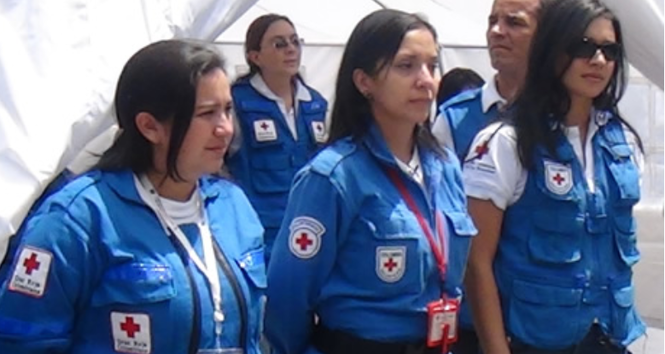
A new National Disaster Risk Management law has been approved by authorities of Colombia, significantly shifting the positioning of the National Response and Prevention System.
The President of the country, Juan Manuel Santos Calderon, together with the outgoing Minister of Interior, German Vargas Lleras and the acting Chief of staff of the Ministry of Sustainable Environmental Development, Adriana Soto, approved the law which adopts a new national disaster risk management policy.
The event was attended by Fernando Jose Cardenas Guerrero, the President of the Colombian Red Cross, director general Walter Cotte, and 30 staff.
The new law includes coverage of the management, prevention and response to disasters, and organizes the country from a national to a territorial level, with the participation of the public and private sectors as well as communities.
With approval of the new law, the country will totally change relief strategies to people affected by natural disasters and the government will have new tools that will allow for better decision making and better implementation of budgets provide proper assistance to emergencies as necessary.
President Santos said that the law will help in reducing risks and saving more lives. “This will allow that the assistance and intervention in emergencies that occur in the country will occur as quickly as possible,” he said.
Calderon added: “This unit is responsible for coordinating the National Disaster Response and Prevention System. Their role is to strengthen the capacities and knowledge, risk reduction, preparation and the appropriate management of disasters. At the same time, the National Disaster Response and Prevention System has some new instances in which they will work in an articulated manner and will optimize the functioning of all public and private entities involved in risk management.”
Red Cross president Cardenas Guerrero said the law was a significantly step forward in the country’s understanding of risk and disasters, but that that authorities could have made more use of the Red Cross. “We were hoping that we would be taken more into account in instances where we have a lot of experience and capacity like our knowledge of disasters and risk reduction, which is one of our flagship programmes, in which we were not involved,” he said.
However, the Colombian Red Cross is included in a very important component of the system as part of the national disaster response and prevention and risk management council, in which the Colombian Red Cross can intervene in the topics in which it was not involved.